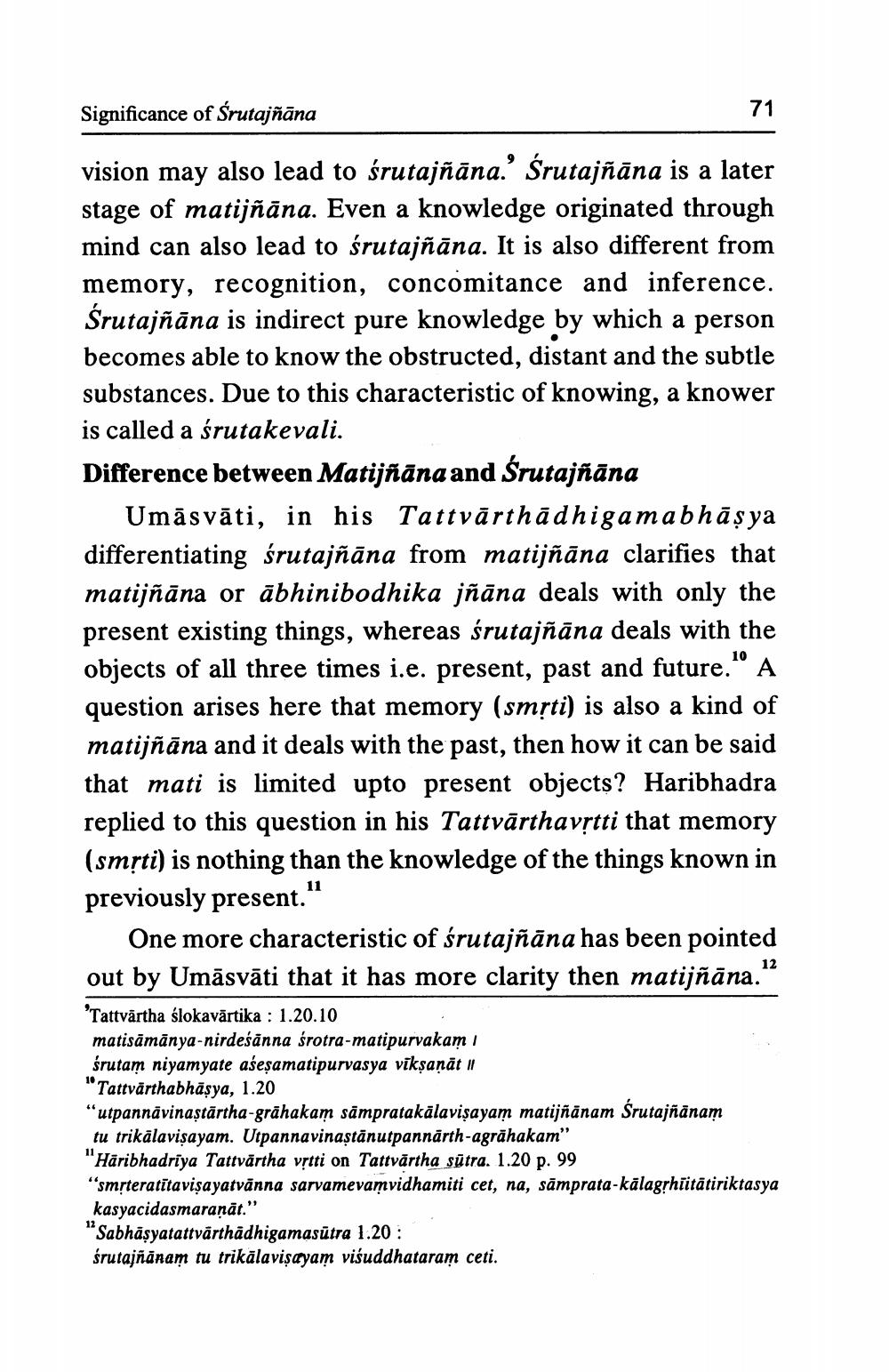________________
Significance of Śrutajñāna
vision may also lead to śrutajñāna.' Śrutajñāna is a later stage of matijñāna. Even a knowledge originated through mind can also lead to śrutajñāna. It is also different from memory, recognition, concomitance and inference. Śrutajñāna is indirect pure knowledge by which a person
becomes able to know the obstructed, distant and the subtle substances. Due to this characteristic of knowing, a knower is called a śrutakevali.
Difference between Matijñāna and Śrutajñāna
71
Umāsvāti, in his Tattvärthādhigamabhāṣya differentiating śrutajñāna from matijñāna clarifies that matijñāna or abhinibodhika jñāna deals with only the present existing things, whereas śrutajñāna deals with the objects of all three times i.e. present, past and future." A question arises here that memory (smṛti) is also a kind of matijñāna and it deals with the past, then how it can be said that mati is limited upto present objects? Haribhadra replied to this question in his Tattvārthavṛtti that memory (smrti) is nothing than the knowledge of the things known in previously present.
11
One more characteristic of śrutajñāna has been pointed out by Umāsvāti that it has more clarity then matijñāna."
'Tattvärtha ślokavārtika: 1.20.10
matisāmānya-nirdeśānna śrotra-matipurvakam |
śrutam niyamyate aseṣamatipurvasya vikṣaṇāt || "Tattvärthabhāṣya, 1.20
"utpannāvinaṣtārtha-grāhakam sampratakālaviṣayam matijñānam Śrutajñānam
tu trikalaviṣayam. Utpannavinaṣtānutpannārth-agrāhakam"
"Haribhadriya Tattvärtha vṛtti on Tattvārtha sūtra. 1.20 p. 99
"smṛteratītaviṣayatvānna sarvamevamvidhamiti cet, na, samprata-kālagṛhūitātiriktasya
kasyacidasmaraṇāt."
"Sabhāṣyatattvärthadhigamasutra 1.20:
śrutajñānam tu trikālaviṣayam viśuddhataram ceti.




